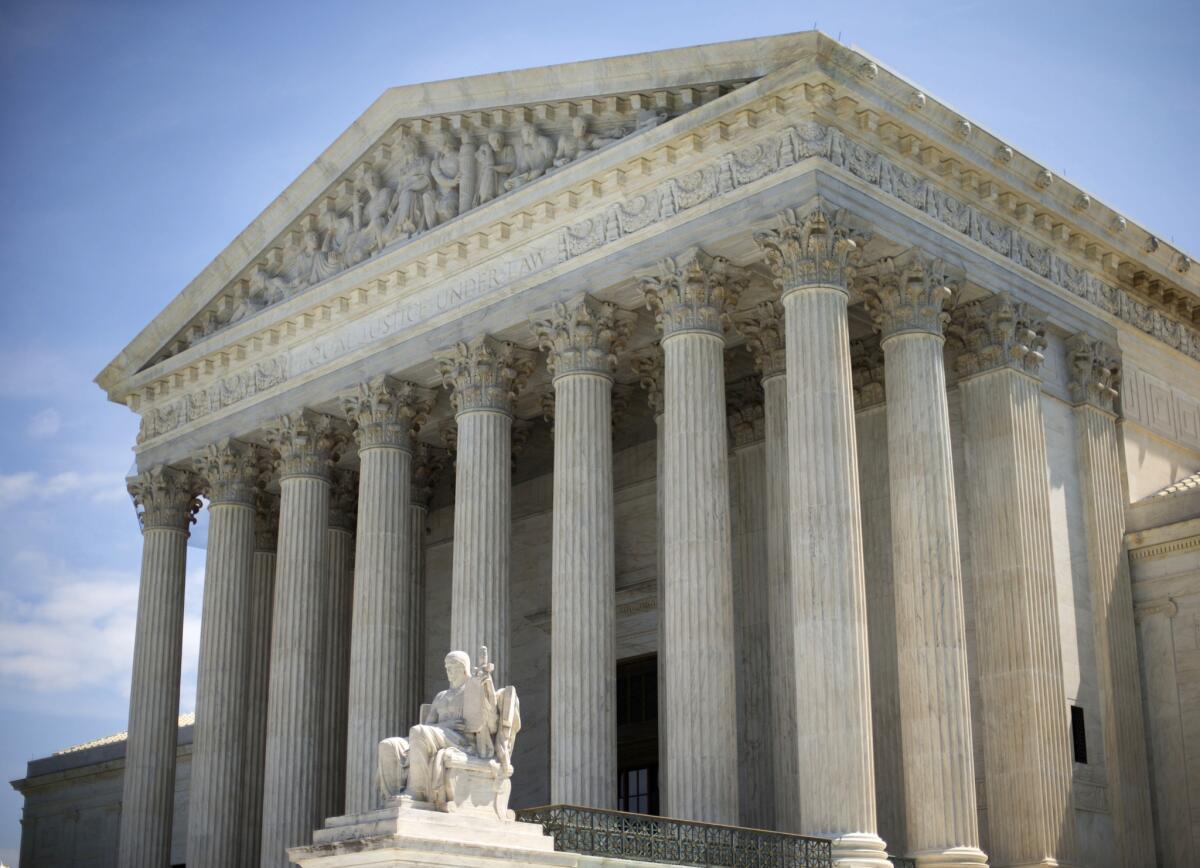Supreme Court may limit class-action lawsuits against tech industry

The Supreme Court seems divided over whether Internet search sites can be sued for publishing false information about people if the errors don’t cause any real harm.
- Share via
Reporting from Washington — The U.S. Supreme Court justices, hearing arguments in a closely watched tech industry case, sounded poised Monday to limit mass lawsuits from people who sued after seeing false information about themselves online.
Led by Chief Justice John Roberts, the court’s conservatives said lawsuits should be limited to people who can show they were hurt in some way by inaccurate online data.
If the court ultimately rules that way, it would block or greatly shrink class-action claims, filed on behalf of millions of people, that have sent a scare through the tech industry.
The case of Spokeo vs. Robins asks a basic question about who can sue in an era of Web commerce when countless transactions take place online.
Can millions of consumers join a class-action suit if a company allegedly violates provisions of a federal law, such as the measures that regulate credit information or prohibit unwanted phone calls and text messages? Or are these suits limited to people who can show they were actually harmed?
Spokeo, a “people search engine” based in Pasadena, was sued in a class claim brought on behalf of Thomas Robins, a Virginia man who said his profile was entirely inaccurate.
He was described as married with children, in his 50s and with a graduate degree and a professional job. None of that was true. Robins said he was unemployed and unmarried.
The 9th Circuit Court of Appeals in San Francisco cleared his suit to go forward because the Fair Credit Reporting Act sought to protect consumers from inaccurate credit reports and authorized damages of $100 to $1,000 for violations.
Justice Elena Kagan said Robins appeared to have a strong claim.
“Most people would feel they had been harmed,” she said, if a company posted “false information about you.” And Congress clearly thought that was a problem. “Don’t we owe them a little respect?” she asked, referring to members of Congress.
The court’s liberal justices appeared to agree with her.
But Justices Antonin Scalia and Anthony Kennedy joined with the chief justice in suggesting lawsuits must be limited to people who can show they suffered an actual injury.
Roberts cited the example of someone who is upset to find his unlisted telephone number posted online, but realizes the number is wrong. How can such a person claim an injury under the telephone privacy act? he asked.
The justices will meet behind closed doors to vote on the case, and they are likely to issue a decision early next year.
On Twitter: @DavidGSavage
ALSO
Should U.S. tolerate foreign dictators? Issue splits Republican candidates
Super volcano? The Big One in Wyoming? A huge gash in Earth has folks talking
How evolving public attitudes on marijuana could affect the 2016 presidential race
More to Read
Sign up for Essential California
The most important California stories and recommendations in your inbox every morning.
You may occasionally receive promotional content from the Los Angeles Times.











